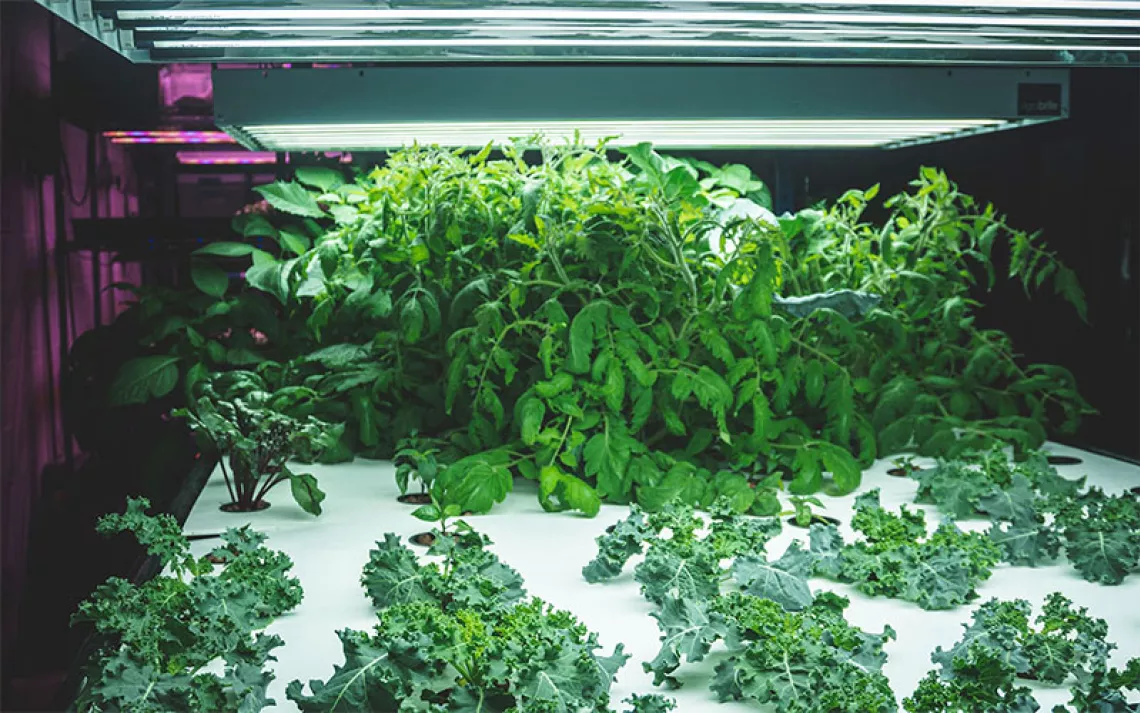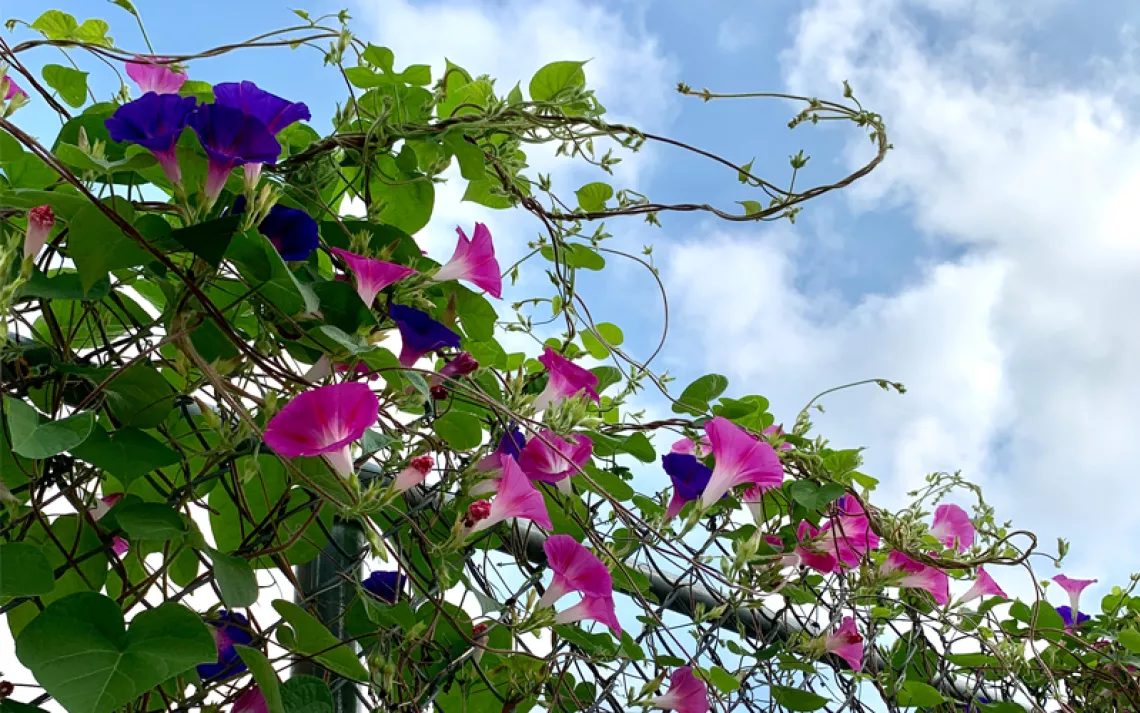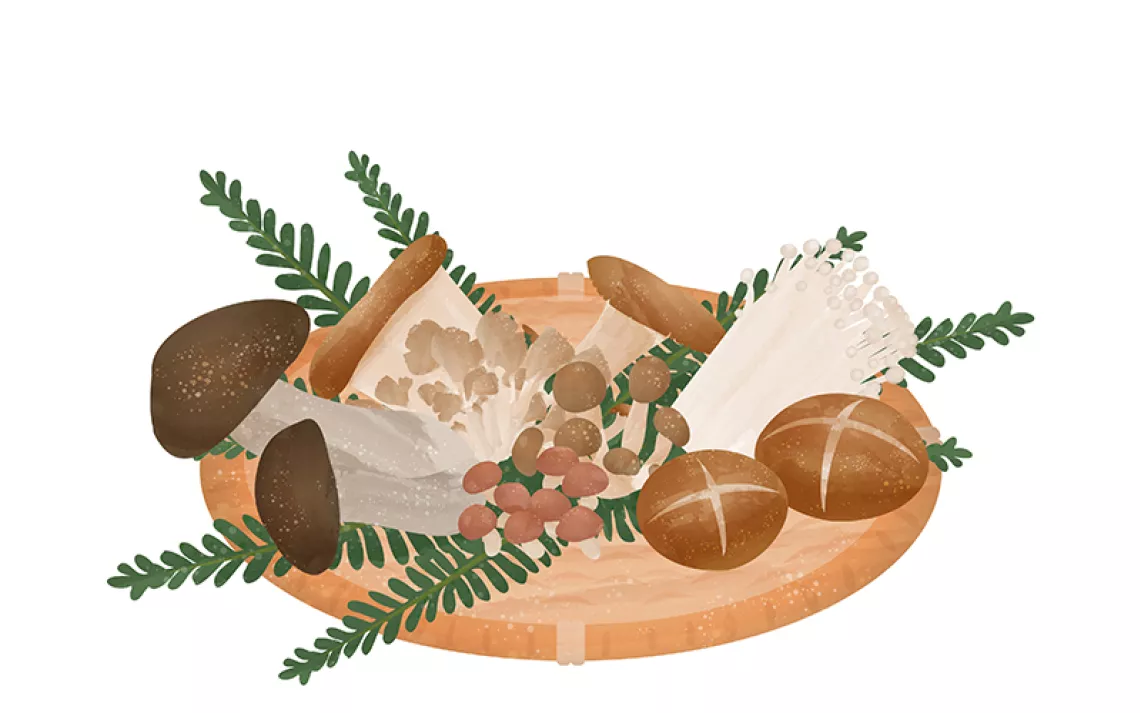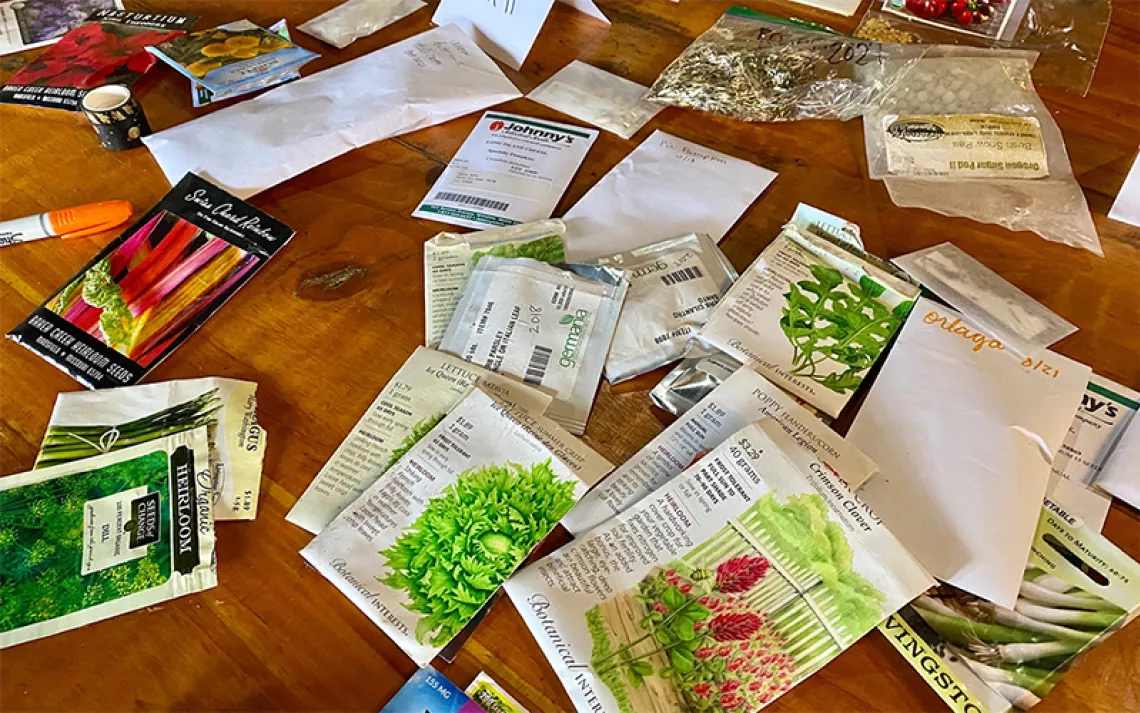The Preservation of Culture Begins With a Seed
Black seed keepers are recovering African American history

Photo courtesy of Amirah Mitchell
Growing up in Boston, Amirah Mitchell felt disconnected from her extended family in the South. As she sought ways to restore that connection, Mitchell turned to agriculture work, which had long been part of her family’s history. During the past 10 years, she has worked on urban farms in Massachusetts, Georgia, and Pennsylvania and has taught workshops on agroecology.
Mitchell, 28, who was a board member at the Food Project in Boston before going to work at Greensgrow Farm in Philadelphia, told Sierra, “When I started farming, it felt very healing to me. It was a way of doing some ancestral trauma healing work, and it felt very important to me that my agricultural practice was related to this.”
Eventually, Mitchell searched for ways to deepen her agricultural practice and knowledge. In 2016, she attended the Northeast Organic Farming Association conference, and while there she couldn’t help but notice that she was one of the few people of color. Looking to connect with farmers of color, she struck up a conversation with a Black elder and asked what his needs were. He told her: high-quality seeds that are culturally appropriate and easily accessible to Black farmers and gardeners.
After that conversation, Mitchell dove into the world of seed saving and heirloom crop preservation. As she learned more about the state of seed production in America, she had an epiphany: Seed keeping was the missing piece of her work toward cultural rediscovery. So she looked for a community of Black seed keepers. The process, she found, was slow.
“I couldn't find many other people in seed keeping who look like me as an African American,” Mitchell said. “So I began to realize that there's not just a personal need to connect with my own ancestral seeds; there’s also a need in the seed production and farming space for more people of color.”
In 2018, Mitchell learned about Truelove Seeds, a seed company focused on cultural preservation based in Philadelphia. She reached out to one of the organization’s cofounders to see if she could be an apprentice there and was invited to join. Today, Mitchell is in her third season with Truelove and is starting a community-based seed library at the urban farming organization Greensgrow.
There are a number of reasons why many people are passionate about local, organic food production. For some, an interest in home food production comes from merely wanting to have more control over one’s food sources, as we saw during last spring’s wave of “pandemic planting.” For others, food sovereignty is a way of distancing oneself from the environmental and social impacts of an industrialized food system. And seed keeping, Mitchell says, is an essential element of food sovereignty, especially when so much of the global seed supply is controlled by a handful of corporations. “There's a huge problem in the seed economy, where cultural resources are being appropriated, misused, sold, and in some cases, distorted,” Mitchell said. “There's nothing more important for community sovereignty than being able to have control over them. It doesn't get more important than seeds to me because they're the start of everything.”
But for Mitchell and her colleagues at Truelove Seeds, the practice of seed keeping is about more than local food production. Seed saving is an intimate part of preserving African American culture, a bridge between the overlooked past and a regenerative future. “For me, it's very important that people of color, in particular African diasporic people, have access and control over their own seed systems,” Mitchell said. “No one else is going to protect our heritage and well-being the way we will for ourselves.”

Photo courtesy of Amirah Mitchell
Born to a family of farmers and justice workers in the Mississippi Delta, Christopher Bolden-Newsome is a cofounder of Truelove Seeds and the lead curator of Truelove’s African diaspora seed collection. The seeds in the collection are sent to Bolden-Newsome from Black farmers across the country, Black elders from throughout the South, and other people who are engaged in the preservation of Black culinary traditions. The seeds are the horticultural descendants of crop varieties brought from Africa and then adapted to the environments and weather patterns of North America.
What separates Truelove from many heirloom seed companies is that cultural preservation is at the heart of its operation. In a white supremacist society, preserving the seeds of his ancestors is one way for Bolden-Newsome to pave the way toward an authentic documentation of Black history.
“The idea of keeping seeds wasn’t specifically about keeping seeds,” Bolden-Newsome told Sierra. “It’s that the seed is a vehicle, the seed is the holder, the seed is a container which holds the culture that I need to preserve. . . . I think our seeds and the agricultural knowledge around [them] has to be defined by us [African Americans]. We have to pick it up and then keep searching to find the parts of it that are our own expression and rely less on what's been collected by academics.”
As he showed me an assortment of seeds over Zoom—okra, crowder peas, and purple hull peas—Bolden-Newsome was transported into his past. “If I look at [the seeds] long enough, I smell the steaming pots in my grandmother's kitchen,” he said. “I can feel the tightness of a small kitchen in a Southern house. I can hear the creaking of the linoleum floor. It sparks a chain of memories. And it’s not just that there's a smell that comes with it. There are feelings, memories of harvest and ease with my grandmother working in the field and my dad cooking. There's a memory of not liking them; there's a memory of shame around eating my traditional foods with people who thought your food stank, or looked funny, or was weird, and internalizing that.”
When Mitchell thinks about seed keeping, she too is reminded of her grandmother—in her case, a grandmother who grew up in Georgia picking cotton. As a teenager, Mitchell’s grandmother moved up north to Michigan and never returned, a story that’s common for African American families who moved during the Great Migration. While migration was a chance for a better life, the move north often meant leaving behind terrains of memory. In the course of that migration, parcels of history—the culture, the farms, and the land—also disappeared.
Because of the grief that often accompanied migration, Mitchell finds it important to restore those cultural connections to the land through farming. “As African American farmers, we feel this tension with farming, because we know that it's been part of the oppression of our ancestors for a long time in this country,” said Mitchell. “Farming carries that cultural stigma and weight.”
During the Atlantic slave trade, crops like sugarcane, West African yams, collard greens, and rice were brought to the Americas by West African women who braided seeds into their hair. Enslaved Africans gardened on plantation owners’ land to provide for their own sustenance, and crops like cabbage, collard and turnip greens, white and sweet potatoes, and a variety of beans became staple foods (though some slave owners prohibited enslaved peoples from growing their own crops, out of fear they would sell them to buy their freedom). After Emancipation, the only opportunities available to freed enslaved people were in tenant farming and sharecropping, in which they received little cash return for their labor, and so home gardening remained a necessity. Those homegrown culinary traditions were passed down over generations, eventually becoming the backbone of Black food culture in America.

Sign up to receive Sierra News & Views
Get articles like this one sent directly to your inbox weekly.
With this action you affirm you want to receive Sierra Club communications and may vote on policy designated by the Sierra Club Board.

Photo by Christopher Bolden-Newsome
“That gives me a lot of strength to think about, to think about that struggle, that resilience,” Mitchell said. “It’s why it's so important to save those varieties, and to keep those varieties not only in memory but in the foods that we're eating and growing.”
One of the seed varieties she’s saved is the green striped cushaw squash. The cushaw squash was originally stewarded by Indigenous peoples in the Caribbean and arrived in North America through the slave trade. The seed eventually became the crux of the culinary tradition of enslaved Africans in the Carolinas and Virginia. After learning about the squash, Mitchell was able to find its seeds and grew out a couple generations.
The cushaw squash has become a visceral connection to her family’s history. When Mitchell’s grandmother Patty passed away in 2018, she went to North Carolina to attend the funeral. Spending time with her extended family, she learned that her great-grandparents once cultivated a garden and grew the cushaw squash. A couple weeks later, she baked a pie with the squash and brought it to North Carolina for Thanksgiving. When her great-aunt tried it, she said that it tasted exactly like the pie her father used to make as a child.
“That, to me, is a great example of where you can find the best seed stories,” Mitchell said. “I have read all the books looking for these stories, yet this story was waiting for me in my own home. Hopefully soon, I can visit family again in the South and learn more about these varieties that have been important to us, to which we have forgotten why they’re so special and don't hold in our memory the way that we should.”
Such stories help illustrate the ways in which Black-centered seed saving is as much a cultural endeavor as an environmental one. Bolden-Newsome says words like sustainability, permaculture, and agroecology never resonated with him. He resists the notion that his work is an extension of an environmental movement that, in his view, is rooted in racism.
“I don't often think about our work at Truelove as being an extension of the larger environmental movement simply because it’s a white movement,” Bolden-Newsome said. “A big part of why I have to intentionally save my grandmother's seeds and my grandfather's ways of knowing the world—working the earth and being in relationship with the earth—is in large part due to entities and organizations … like the Sierra Club.”
For Bolden-Newsome, food sovereignty is more than the reclamation of the land or the recovery of traditional foodways. It’s a deeper means toward Black liberation.
“The idea of sovereignty is something that I can't tie just to the ownership of land,” said Bolden-Newsome. “If that were the case, we'd be done for. My people lost the land from the moment that we got here. It's the way I can take the land with me.”
Mitchell agrees. She says that for food sovereignty to become a reality, the seeds must stay within the communities they come from. In the course of working with Truelove Seeds and bringing culturally specific seed saving to Greensgrow, Mitchell’s relationship with the craft of seed saving has transformed. What was once a practice of self-healing is now an ongoing process of healing for all.
“If you’re not seed keeping with a community, you're missing out,” Mitchell said. “The community aspect of being on the land is so important to me . . . that feeling when you're all sitting around a bucket shelling peas is irreplaceable.”
She continued, “You have to sit back and take a moment of gratitude to the earth, the plants, the seeds, and to your ancestors in this work. That's what seed keeping is for me. You've got to take that pause to appreciate everyone who has gotten that seed to you. You can't rush through that moment.”
 The Magazine of The Sierra Club
The Magazine of The Sierra Club



